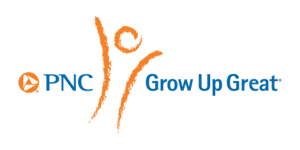Grades
Preschool, Pre-K, Kindergarten
Georgia Wolf Trap, the Alliance Theatre’s Early Childhood program model, is a regional affiliate of the national Wolf Trap Institute. This residency program provides early learning classrooms with arts-integration strategies inclusive of drama, dance, puppetry, and music. Rooted in the Science of Reading, these strategies support students’ phonemic awareness, vocabulary development, reading comprehension, English Language Learning, and STEM/STEAM skills. This research-based program has been shown to increase expressive and receptive language skills in early learners.
Preschool, Pre-K, Kindergarten
Hallie Angelella, hallie.angelella@alliancetheatre.org, 404-733-5255



Join us for transformative theater that speaks to the heart of Atlanta.